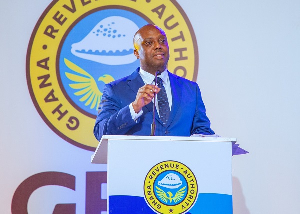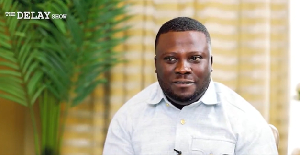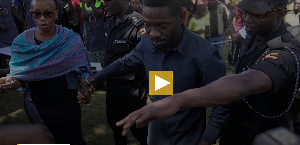As a former head of research and development for a leading international voluntary organisation, I visited most of the orphanages and centres throughout the country. Through my own experience, corroborated by other researchers, I learned that some unscrupulous orphanage operators have adopted a business model where the centres get more money from international donors if they have more children. Orphanage recruiters approach poor, often rural families, promising a better education, better food and clothing, and a brighter future for children who leave their families to live in institutions. There are many reports of cash transactions for the children, though these are usually referred to as donations to the families.
To be clear, the “orphans” even at the properly-run accredited orphanages are more often abandoned children (including the disabled) than children whose parents have both died. But there is a difference between caring for abandoned children and enticing poor families to give up their children. Illegal orphanages in Ghana are often run as businesses, the children being assets. Such institutions often are not even interested in taking in disabled and genuinely abandoned children. Dozens of orphanages in Ghana, including some run by religious bodies, have been accused of exploiting children to attract donations. Some have even offered children for local adoption (for money) to avoid laws prohibiting foreign adoption in the country.
While a few orphanages in Ghana are well run, enforce child protection policies and have strict rules for visitors and volunteers, almost all are largely unregulated. Ghanaian state institutions are weak and rules about qualifications required to set up an orphanage or children’s home are not enforced. Many small “one-man” churches set up illegal institutions for children. There are an estimated 25 orphanages in the Ashanti region, but only 4 are accredited. The children in the illegal homes and orphanages in the Ashanti Region usually have a known parent, although most are portrayed as orphans to capitalise on the goodwill of foreign tourists and volunteers. These centres are operating illegally and flouting a push by government and United Nations agencies for children to be reunited with their parents.
There is growing criticism in Ghana and other developing countries about so-called “orphan tourism” and “volunteer tourism,” where thinly disguised businesses exploit both tourists and children. Visiting orphanages and volunteering in Ghana can be dangerous for children as they become emotionally attached to foreigners and feel abandoned when they leave. Visitors who have undergone no background checks can walk into several of Ghana’s orphanages and be left alone with children. Donors also take children away for outings – sometimes overnight – leaving them open to sexual abuse, according to one of our intern volunteers.
Volunteers are sometimes placed at orphanages and later realise that they have been double-crossed, as most of the children in the institutions have parents. What disheartens them most is the affluent lifestyle of the owners of these orphanages in contrast to the deplorable living conditions of the children. According to one American volunteer who came to me after a bad experience with one of these institutions, some of the managers ”keep the kids looking poor and in thread-bare dresses in order to attract sympathy from donors. It’s a lucrative business and the children are the assets.”
There are many charitable organizations in Europe, especially Netherlands and Germany that are willing to support orphanages in Africa and Asia by providing money, logistical support, and volunteers. Most of the illegal orphanages are able to link with these well-intentioned European charities. Funds are diverted to the owners and managers of the orphanages, who have benefitted tremendously from these partnerships. Often the funds, originally designated for classrooms and dormitories for orphans, are used to convert the orphanage into a lucrative private school.
Several international studies have found that children should be living in their communities with family members, relatives, or foster families except in extreme circumstances. A study by Save The Children concluded that institutional care should only be used for children as a “last resort and only then if it is of a high standard and in the best interests of the individual child.” I have observed that many orphanages refused to release children once they were in their care even if a family environment was available. Studies also show that in most orphanages, children are taught a foreign language, religion, and Western habits that leave them struggling to cope with Ghanaian culture when they are eventually released, often when they turn 18.
Volunteer placement organisations, including my own (Light For Children Ghana), promote volunteer tourism as a way for travellers to make a difference and have experiences that are life-changing and rewarding. Light For Children makes an effort to keep volunteer fees low, and keeps a close eye on the policies and accreditations of the orphanages where volunteers are placed, but many other organisations are less scrupulous. Volunteers often pay several thousand dollars for a two-week visit, or a correspondingly higher amount for a stay of several months. Many are placed at orphanages where they later observe that most of the children have living parents.
A friend in Tema who was raised in an orphanage told me that though she learned to speak good English, conditions were strict and she was allowed to visit her parents only about twice a year.
“They told my parents I would be away for a year, but I stayed four years, until I was 19,” she said. “I was very sad for all the time, because I missed my family.”
In December last year an American student who took an internship programme at Light For Children told us how she had been deceived by a manager of an orphanage in Accra. She said that she has been sponsoring a girl through a fund raiser in America for the past five years, so last year she decided to visit her together with the fund raiser. She said that in talking to the girl she got to know that the girl is not an orphan, nor is her 9-year-old brother who is also at the orphanage. She reported that the girl appealed to her to help her and her brother return to their parents because of the poor food, bullying and drudgery that they were going through despite the fact that they enjoy better education.
The intern appealed to the new supervisor to reunite the children with their parents, and assured him that she had developed a fondness for the girl and would continue to support her after her return to her family. But much to her chagrin, the supervisor was unwilling to accept her plea, using the excuse that the girl would not get a good education in her village.
In February 2013, UNICEF published that about 5000 children in Ghana live in orphanages and other residential care institutions. Child protection continues to worsen despite great strides made to bring children back from unnecessary institutionalization. The report noted that according to global research, children thrive in family environments and that a child’s general development and safety is often hampered when he/she grows up in an institution.
Recently, the Department of Social Welfare in Kumasi closed down a poorly managed orphanage in a district outside Kumasi. The report from the district office spoke of excitement among the children when it was announced to them by an official that they would be sent back to their parents. The report alleged that two sons of the owner of the home were also staying at the orphanage, classified as orphans.
THE WAY FORWARD
• The Department of Social Welfare should periodically publish the names of recognised orphanages in the media.
• Public-spirited institutions, churches, and the general public are advised to do background checks through the Department of Social Welfare before they make donations to the orphanages.
• Churches, individuals and corporate bodies should not visit orphanages where annual financial reports are not openly displayed and where receipts for donations are not given.
• Volunteer placement organisations should place volunteers in homes that have a license to operate and also have well-defined discharge or exit plans for the children.
• The Department of Social Welfare must ensure that if there is no imminent danger to the child, he/she should not be removed even if the family is dysfunctional. Most institutions contain many children with at least one living parent, but the managers defend their decision to keep such children by alleging that the parents are not capable of raising the children optimally.
In Ghana, radio stations seasonally appeal for donations to orphanages, but unfortunately most of these donations are sent to unregistered homes that exploit non-orphaned children as assets. Because of this, I am appealing to these radio stations to seek advice from the Department of Social Welfare before donations are given.
Our celebrity musicians and footballers, if they are genuinely touched by the plight of orphans (as they always profess), should consider the needy orphanages that are dotted throughout the countryside instead of the already well-endorsed homes in Accra and the Central region. Some of the needy and accredited orphanages include St Joseph Orphanage at Jirapa in the Upper West region, Missionary of Charity homes in Ashaiman and Kumasi, and Next Generation Home in Bolgatanga. These homes were heavily dependent on food rations from the Catholic Church, but unfortunately these rations have been discontinued.
I want to take this opportunity to express my gratitude to the Department of Social Welfare in Ashanti for the bold decision to shut down an orphanage near Kumasi. The effort of the district Director of Social Welfare in Mamprusi West to close down all orphanages and children’s homes in the district too is commendable. I hope that the civil society organizations, district assemblies, and the Department of Children will continue to make strides in this area.
Opinions of Saturday, 5 October 2013
Columnist: Gyimah, Mike Owusu












